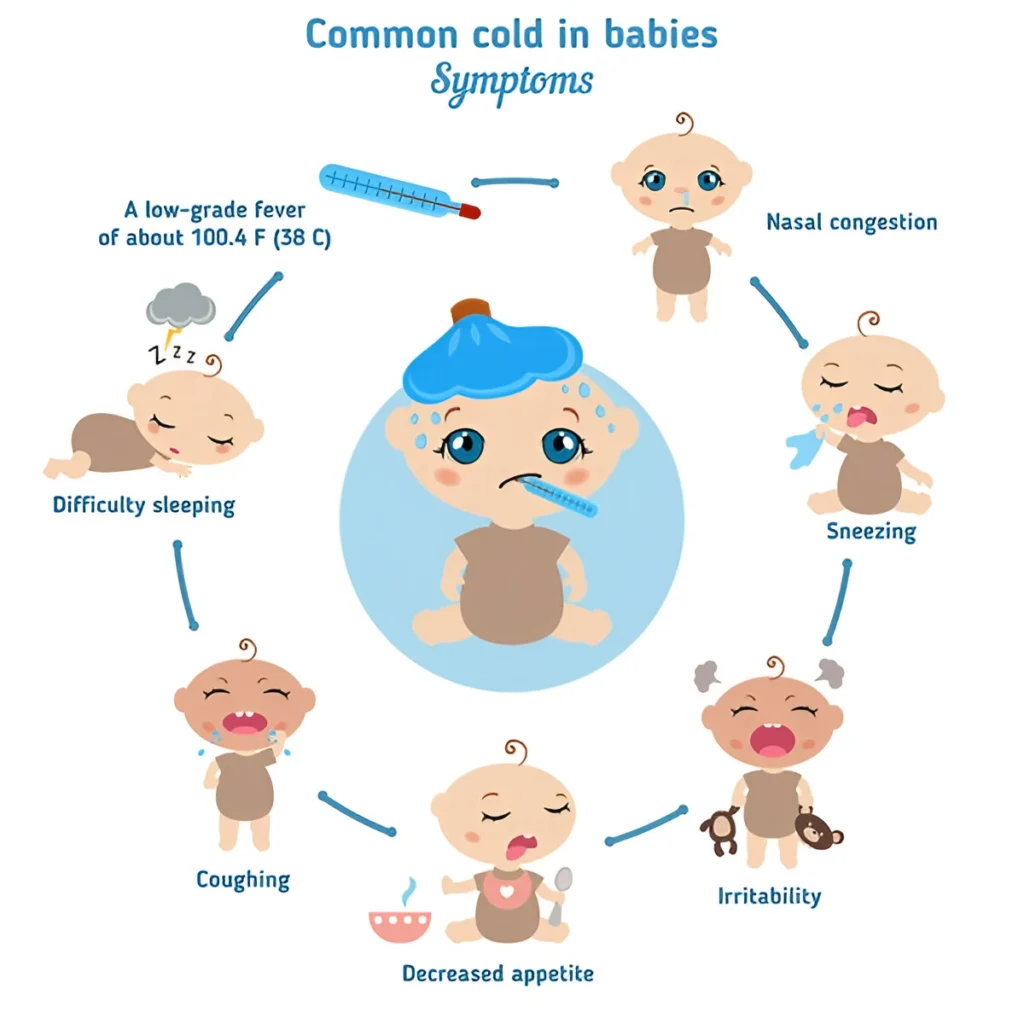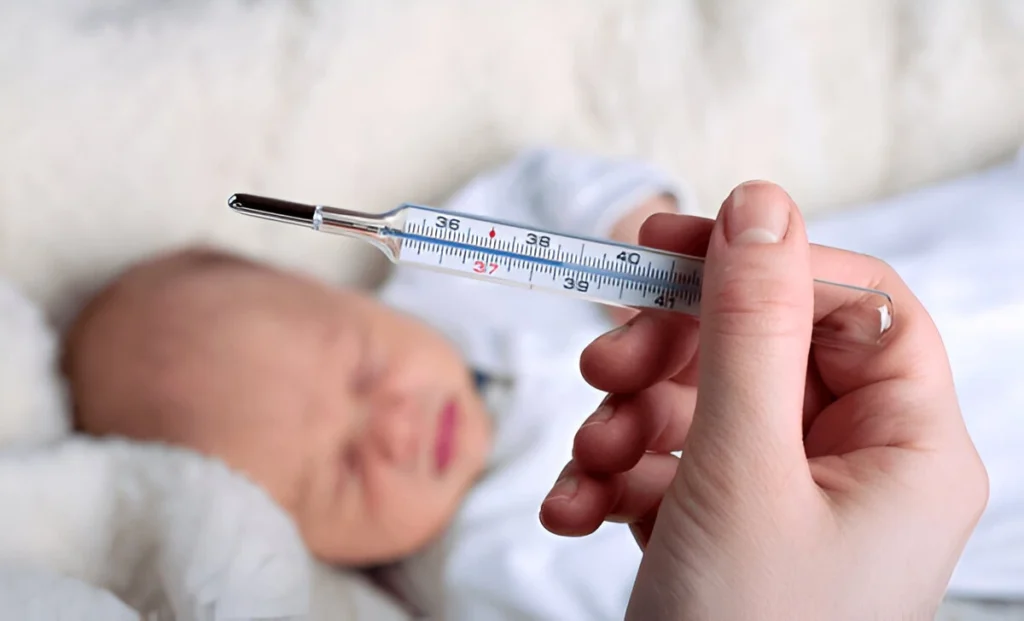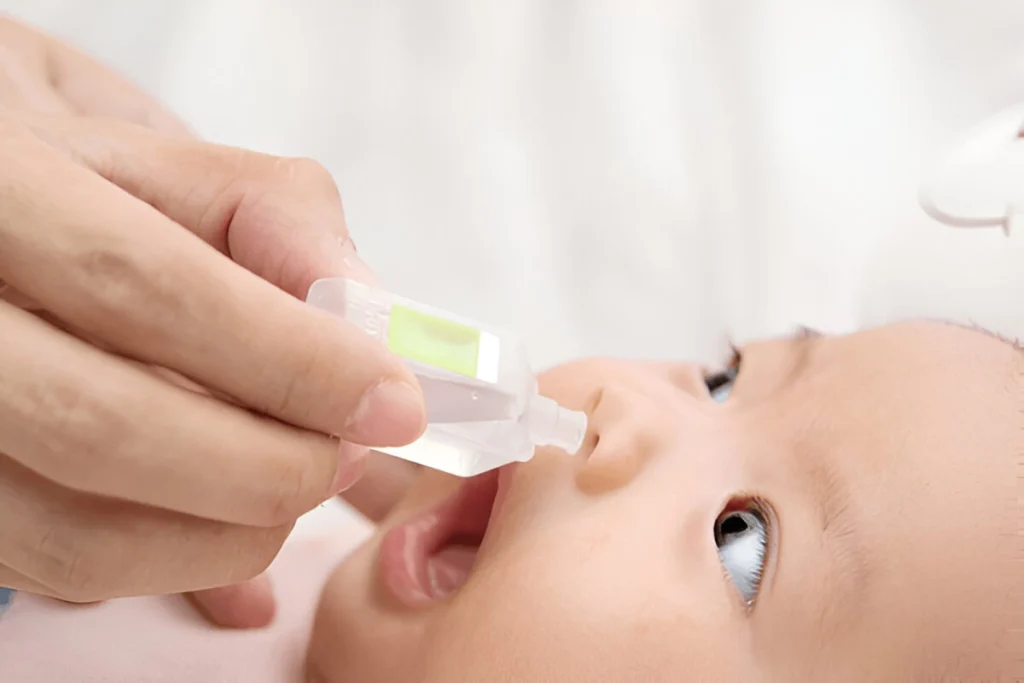Parenting comes with endless questions, and when your baby is unwell, those questions can double. One common concern? Whether babies sleep more when they’re sick. Understanding the nuances of infant sleep during illness is crucial for ensuring your little one gets the comfort and care they need. This article dives deep into the science, offers practical tips, and answers frequently asked questions about sick baby sleep habits. Let’s get started!
Do Babies Sleep More When Sick?
Why Do Babies Sleep More During Illness?
Babies often sleep more when they’re sick because their bodies are busy fighting off infections. Sleep allows their immune system to ramp up production of infection-fighting cells like cytokines and white blood cells. These processes are energy-intensive, leaving your baby feeling sleepy.
Moreover, sleep helps reduce stress hormones, which can interfere with healing. According to sleep experts, this restorative rest is not just normal—it’s essential. So, if your baby seems to nap endlessly during a cold or fever, it’s a sign their body is working hard to recover.

How Much Extra Sleep Is Normal for a Sick Baby?
It’s not uncommon for sick babies to sleep several hours more than usual. While the exact amount varies, a baby who typically naps for two hours might extend their nap by an hour or two. Nighttime sleep might also stretch longer if they aren’t waking up frequently to feed.
Still, if your baby is lethargic, difficult to wake, or sleeping excessively (think 18-20 hours a day), it’s a good idea to check with your pediatrician. Excessive sleep could indicate a more serious illness.
The Science of Sleep and Healing
How Does Sleep Aid Recovery?
Sleep is like a natural medicine. During deep sleep, the body repairs tissues, replenishes energy, and strengthens the immune system. This explains why sick babies sleep more—it’s their way of fast-tracking recovery.
Research has shown that the body produces more cytokines during sleep. These proteins play a critical role in combating illness and reducing inflammation. Babies, with their developing immune systems, rely on these processes even more than adults.
Can Too Much Sleep Be a Concern?
While extra sleep during illness is expected, there’s a fine line between “normal” and “concerning.” Babies who are impossible to rouse, show no interest in feeding, or exhibit pale, clammy skin need medical evaluation. Sleepy doesn’t always mean sleepyhead—trust your instincts.
Signs Your Baby Needs Extra Sleep While Sick
Behavioral Clues Indicating a Need for More Rest
Sick babies often show signs of sleepiness through crankiness, clinginess, or reduced interest in play. They might rub their eyes, yawn frequently, or demand more naps. Paying attention to these cues ensures they’re not overtired, which can worsen illness symptoms.

Physical Symptoms That Signal Fatigue
Physical fatigue in a sick baby might manifest as droopy eyelids, slower movements, or a lack of energy to engage. You might also notice reduced appetite or listlessness. These signs indicate their little body needs downtime to heal.
Common Illnesses That Affect Baby Sleep Patterns
How Colds and Flu Impact Sleep
When your baby has a cold or flu, their sleep can become disrupted by congestion, coughing, and fever. These symptoms can make lying down uncomfortable, leading to restless nights and short naps. But here’s the kicker—despite interrupted sleep, your baby may still feel sleepier overall due to their body’s efforts to heal.
To ease their discomfort:
- Use a cool-mist humidifier to keep their nasal passages clear.
- Try saline drops to alleviate congestion.
- Elevate the head of their crib slightly to improve airflow.
Keep in mind that cold and flu symptoms can last up to 10 days, but most babies start showing improvement in sleep quality by day three or four.
Teething Troubles and Restlessness
Teething is another common culprit behind sleepless nights. The discomfort from erupting teeth can make even the soundest sleeper toss and turn. A teething baby may wake frequently, refuse to settle, or cry out in their sleep.
To help:
- Gently massage their gums with a clean finger.
- Offer a chilled teething ring to soothe the pain.
- If necessary, consult your pediatrician about safe pain relief options.
While teething can disrupt sleep, it’s usually temporary. Once the new tooth breaks through, you’ll notice your baby returning to their usual sleep patterns—though they may need a few extra cuddles in the meantime.
What To Do When a Sick Baby Won’t Sleep
Tips for Soothing a Restless Baby
When a sick baby won’t sleep, it’s time to pull out all the stops. Start with the basics:
- Keep the room dark and quiet.
- Use white noise to drown out household sounds.
- Stick to a familiar bedtime routine, even if your baby seems fussy.

Sometimes, small adjustments can work wonders. If your baby is congested, try holding them upright for a while before laying them down. Gentle rocking or patting can also help them drift off.
Creating a Comfortable Sleep Environment
A sick baby needs extra comfort to sleep well. Ensure their room is a calming sanctuary by:
- Setting the temperature between 68–72°F (20–22°C).
- Using soft, breathable bedding.
- Adding a nightlight if they seem more clingy or anxious than usual.
Remember, even minor changes—like using a lavender-scented diffuser or dressing your baby in cozy pajamas—can make a significant difference when they’re under the weather.
Sick Baby Won’t Sleep Unless Held: What Now?
Why Sick Babies Crave Physical Comfort
When your baby is sick, they’re often more clingy because they seek the reassurance and warmth of your touch. This behavior stems from their need for emotional and physical security, which can be heightened by discomfort from illness.
Babies feel comforted by their caregiver’s heartbeat, scent, and warmth. Holding them helps regulate their breathing and heart rate, promoting relaxation and sleep. While this phase can be exhausting, it’s usually short-lived.
Safe Co-Sleeping and Holding Tips
If your baby will only sleep while being held, consider these safe practices:
- Use a reclining chair or rocking chair with proper support.
- Avoid loose blankets or pillows while holding your baby to prevent suffocation risks.
- If co-sleeping, follow safe sleep guidelines, such as keeping the mattress firm and removing excess bedding.
Though holding your baby might feel like a challenge, it’s a temporary solution that helps them get through tough nights.
What To Eat When Breastfeeding Sick Baby
Foods That Boost Immunity for Mom and Baby
Your diet directly affects the quality of your breast milk, making nutrition especially important when breastfeeding a sick baby. Focus on these immune-boosting foods:
- Citrus fruits like oranges and grapefruits for vitamin C.
- Leafy greens such as spinach are essential nutrients.
- Oats to improve milk production and provide energy.
- Ginger and turmeric for their anti-inflammatory properties.

Hydration is equally crucial. Drink plenty of water, herbal teas, or broths to ensure a steady milk supply.
Hydration and Nutrition Tips
If you’re wondering what to eat when breastfeeding sick baby, think nutrient-dense and easily digestible. Consider:
- Homemade soups with vegetables and lean protein.
- Smoothies with yogurt, berries, and honey.
- Whole grains like quinoa or brown rice.
By maintaining a healthy diet, you’re giving your baby the best chance to recover quickly through the antibodies and nutrients in your breast milk.
When To Worry About Your Baby’s Sleep During Illness
Recognizing Red Flags in Sleep Changes
While extra sleep is usually harmless, certain signs warrant closer attention:
- Your baby is difficult to wake.
- They refuse to eat or drink for extended periods.
- They show signs of dehydration, such as a dry mouth or fewer wet diapers.
If any of these symptoms appear, contact your pediatrician immediately.
When To Seek Professional Help
In addition to sleep issues, other indicators—like high fever, labored breathing, or bluish lips—should prompt immediate medical evaluation. Trust your instincts; it’s always better to err on the side of caution when it comes to your baby’s health.
How To Help Your Baby Sleep Better While Sick
Home Remedies for Sleep Troubles
When your baby is struggling to sleep while sick, simple remedies can provide significant relief. Start with these tried-and-true techniques:
- Warm Baths: A warm bath can relax their muscles and clear nasal congestion with added steam.
- Essential Oils: Consider lavender or chamomile (used with caution) in a diffuser to create a soothing environment.
- Saline Drops: Clear nasal passages to make breathing easier for a congested baby.

Adding gentle massage after a bath can further calm your baby, helping them feel secure and ready for sleep. These home remedies not only improve sleep but also offer a comforting routine to ease their discomfort.
The Role of a Sleep Schedule
Even when sick, maintaining a predictable sleep schedule is beneficial. A consistent bedtime routine signals to your baby that it’s time to wind down. Stick to:
- A warm bath
- Quiet cuddling or reading
- A feeding session
While flexibility is necessary during illness, keeping the routine recognizable can help prevent your baby from becoming overtired, which only makes recovery harder.
Do Babies Sleep More After Fevers Break?
Post-Illness Recovery and Rest
Babies often sleep longer after a fever breaks because their bodies are recovering from the energy exerted during the illness. This post-fever recovery sleep allows their immune system to replenish and repair itself, ensuring they’re fully on the mend.
During this time, monitor their hydration and feeding patterns. While longer sleep isn’t unusual, ensure they’re waking enough to drink fluids or nurse adequately.
Managing Expectations
It’s important to recognize that sleep patterns may still fluctuate for a few days after an illness. Your baby might sleep deeply one day and resist naps the next as they regain their energy. Be patient and focus on creating a peaceful environment to help them transition back to their normal routine.
How To Stay Rested as a Parent of a Sick Baby
Tips for Sharing Responsibilities
Caring for a sick baby can drain your energy quickly, so teamwork is crucial. Split caregiving tasks with your partner or a trusted family member. For instance:
- Take shifts during the night to ensure each person gets some uninterrupted rest.
- Divide duties like soothing the baby, preparing meals, or managing household chores.
Don’t hesitate to ask for help. A well-rested parent is better equipped to provide the care your baby needs.
Rest Strategies for Exhausted Parents
When your baby naps, seize the opportunity to rest yourself. Avoid the temptation to tackle chores during this time—your health matters too.
- Use white noise or blackout curtains to create a restful environment for your naps.
- Practice mindfulness or deep-breathing exercises to recharge.
Caring for yourself is just as vital as caring for your baby during this challenging period.
The Role of Breastfeeding in a Sick Baby’s Sleep
Comfort Feeding Benefits
Breastfeeding offers more than nutrition—it provides comfort and security, especially when your baby is feeling unwell. The act of breastfeeding soothes your baby’s nervous system, helping them relax and drift into sleep.
Additionally, breast milk contains antibodies that help fight off infection, making it a crucial part of recovery. Frequent nursing sessions can also ensure your baby stays hydrated, reducing the risk of complications from illness.

How Breast Milk Supports Recovery
Breast milk is packed with immune-boosting components like immunoglobulins and lactoferrin, which help your baby’s body combat pathogens. During illness, your body adapts to produce milk tailored to your baby’s specific needs—a remarkable feature of breastfeeding.
Pairing breastfeeding with skin-to-skin contact amplifies the calming effect, making sleep easier for your little one.
Should You Wake a Sick Baby to Feed?
When It’s Necessary To Wake Them
In most cases, it’s okay to let a sick baby sleep without interruption. However, there are exceptions:
- If your baby is dehydrated or hasn’t nursed for 4–6 hours.
- For newborns or underweight babies, regular feedings might still be essential.
Consult your pediatrician if you need clarification on whether waking them is necessary. They can provide guidance based on your baby’s specific situation.
Balancing Sleep and Nutrition
If waking is required, do so gently. Use soft touches, dim lighting, and quiet voices to avoid startling your baby. Prioritize shorter, focused feeding sessions that allow them to return to sleep quickly. This balance ensures your baby gets both the nutrition and rest they need.
Preparing for the Next Illness
Building Your Baby’s Immunity
While you can’t prevent every illness, bolstering your baby’s immune system can reduce the frequency and severity of illnesses. Focus on:
- Breastfeeding: If possible, continue nursing to provide essential antibodies.
- Vaccinations: Stay up-to-date on recommended immunizations to protect against serious infections.
- Nutrition: Once your baby starts solids, introduce a variety of fruits and vegetables rich in vitamins.

Encourage safe exploration and play to help your baby build resilience while minimizing germ exposure.
Essential Items for Sick Days
Having a well-stocked sick day kit can make caring for your baby much easier. Include:
- Thermometer (digital or ear for accuracy)
- Cool-mist humidifier
- Saline drops and suction bulb
- Infant pain reliever (as advised by a doctor)
- Cozy blankets and a baby carrier
Being prepared reduces stress when illness strikes and allows you to focus on comforting your baby.
FAQs About Sick Baby Sleep Habits
- Do babies sleep more when sick?
- Yes, babies tend to sleep more during illness as their bodies focus on healing. Sleep boosts their immune system and speeds up recovery.
- What should I do if my sick baby won’t sleep?
- Create a calming environment, stick to a routine, and use soothing methods like rocking or white noise to help them relax.
- Why does my sick baby only sleep when held?
- Illness often heightens a baby’s need for comfort and security. Holding them provides the closeness they crave to feel safe and at ease.
- What should I eat when breastfeeding a sick baby?
- Focus on nutrient-dense foods like citrus fruits, leafy greens, and lean proteins. These can enhance the immunity-boosting properties of your breast milk.
- Should I wake a sick baby to feed?
- Only if they’re at risk of dehydration or missing multiple feedings, otherwise, let them sleep to promote healing.
- What if my sick baby won’t sleep unless held?
- Try safe co-sleeping or babywearing during naps. These methods can provide the comfort they need without disrupting your rest.
Conclusion
When your baby is sick, their sleep patterns often change, but these shifts are usually a natural response to their body’s healing process. Whether your baby sleeps more, struggles to rest, or won’t sleep unless held, your attentive care plays a vital role in their recovery. By creating a soothing environment, maintaining good breastfeeding practices, and staying vigilant about red flags, you can ensure your baby gets the rest they need to bounce back stronger. And don’t forget to care for yourself too—your well-being is essential for your baby’s recovery journey!
